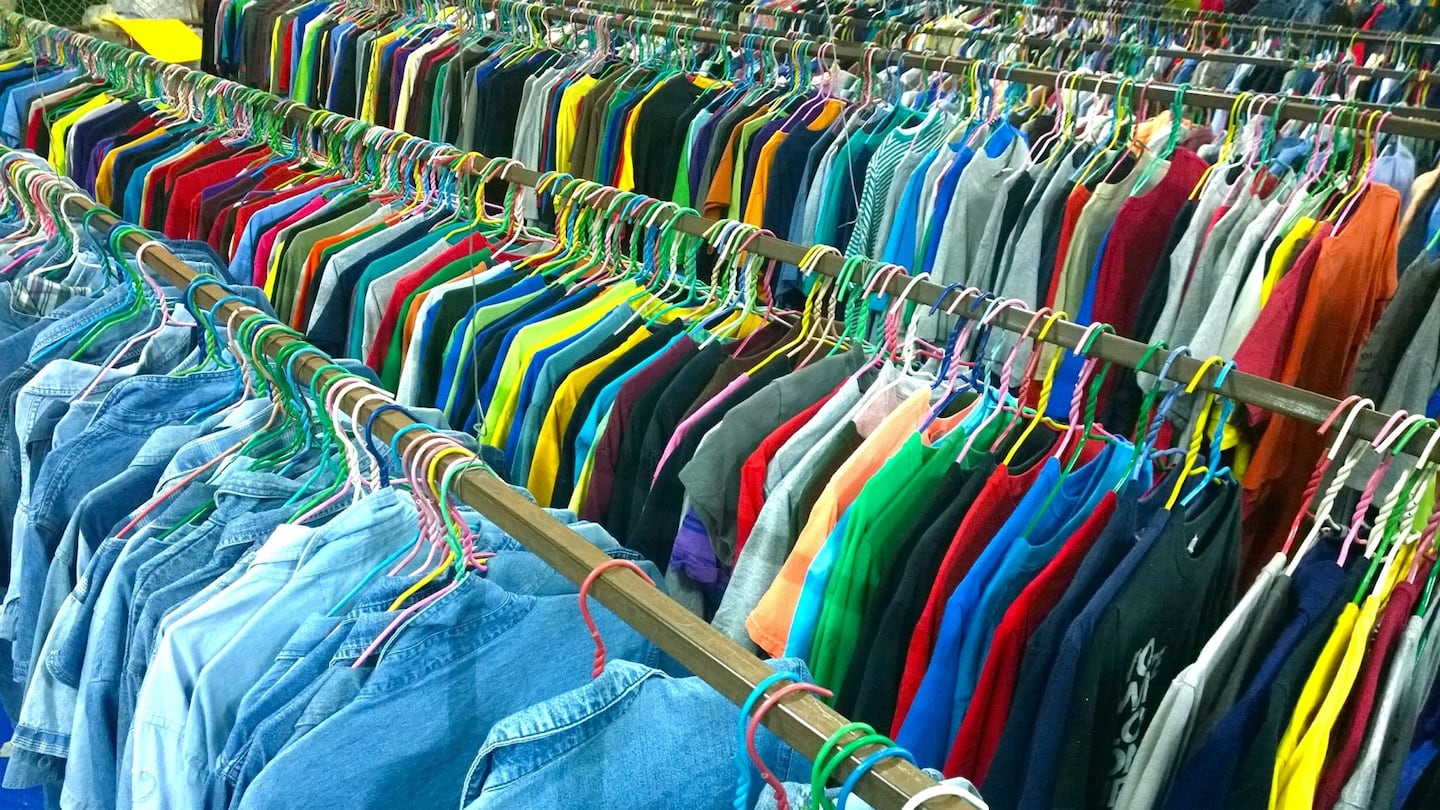
The Business of Fashion
Agenda-setting intelligence, analysis and advice for the global fashion community.

Agenda-setting intelligence, analysis and advice for the global fashion community.

A growing number of US state bans are forcing clothing companies to find less toxic alternatives to per- or polyfluorinated substances — called PFAS for short — when making shirts, hats and rain jackets that are water- and stain-resistant. California and New York have bans on PFAS in apparel that take effect in 2025, while Maine banned PFAS in consumer products, including apparel, starting in 2030.
The bans are focused on keeping this broad family of chemicals, which have been linked to cancer and other health impacts, out of new products. But that leaves a loophole for the continued sale and circulation of existing PFAS-made products in secondhand markets at a time when buying used is only getting more popular. The used apparel industry surged to $177 billion in global sales in 2022, according to a recent report by the online resale retailer ThredUp, and sales are projected to double to $350 billion by 2027.
“Should we really continue reselling products that contain fundamentally hazardous chemicals?” says Mike Schade, director of the environmental group Toxic-Free Future’s Mind the Store program. “A circular economy is going to be an utter failure if we recirculate dangerous chemicals.”
The uptick in secondhand shopping is occurring in part because customers are looking for ways to save money amid rising inflation and also to make more sustainable shopping choices. Meanwhile, companies are embracing resale, renting and other circular business models as a way to cut environmental waste and boost their own sustainability credentials. In September, Swiss athletic brand On launched a resale site; a month later, Chinese fast fashion giant Shein did as well. The high-end outdoor clothing brand Canada Goose jumped into resale this past January, followed by Hennes & Mauritz AB announcing in March that it would team up with ThredUp to sell used clothing and accessories.
ADVERTISEMENT
PFAS chemicals are used in a range of products, including textiles, cosmetics and firefighting foam. From disposing of industrial waste to doing a load of laundry, there are a number of ways these substances find their way into the environment. And once they’re there, PFAS can persist in water and soil for long periods of time, earning them the nickname “forever chemicals.”
A wave of restrictions are coming online to limit PFAS in some or all applications, with a focus on getting forever chemicals out of industrial supply chains for good. The emphasis has been on “turning off the tap” of PFAS, says Yiliqi, a scientist and project manager at the environmental group Natural Resources Defense Council, who goes by one name.
Schade says he hopes there will be more attention on getting PFAS out of legacy products as well. But dealing with PFAS in existing products isn’t easy.
“Once it’s in the clothing, it’s really hard for us to tell or deal with it,” Yiliqi says. Her advice is for people to avoid, where possible, new and used products that are known to have PFAS. If there isn’t an explicit label that says “PFAS-free” or something similar, her rule of thumb is to assume that descriptions about water- and stain-resistance likely mean these chemicals were involved.
It’s unclear who in the fashion world, even among those companies promoting the circular economy, is thinking about PFAS and resale. Even companies leading the way in both clearing forever chemicals from their supply chain and offering secondhand offerings were silent on the overlap: Patagonia Inc. and North Face’s parent company VF Corp., both of which have taken steps to remove PFAS from their supply chains and both of which offer resale options, declined to comment. Canada Goose Holdings Inc., another retailer phasing out PFAS and new to resale, did not respond to repeated requests for comment.
When asked about PFAS chemicals, ThredUp co-founder and chief executive officer James Reinhart said he wasn’t familiar. “I will look it up,” he told Bloomberg Green.
Maxine Bédat, founder and director of fashion-focused think tank the New Standard Institute, says the issue has yet to gain much traction within the circularity community. “As we attempt to transition into a better place, a just society, or whatever term we’re giving it, it’s not going to be a clean transition,” she says, noting the impracticality of suggesting everyone simply get rid of their clothes and start over. “There will be challenges along the way, and right now, there’s no easy solution here.”
By Zahra Hirji
ADVERTISEMENT
Learn more:
Why Fashion Still Uses Toxic ‘Forever Chemicals’
Brands from Canada Goose to Patagonia still rely on PFAS for performance attributes like waterproofing.
As they move to protect their intellectual property, big brands are coming into conflict with a growing class of up-and-coming designers working with refashioned designer gear.
The industry needs to ditch its reliance on fossil-fuel-based materials like polyester in order to meet climate targets, according to a new report from Textile Exchange.
Cotton linked to environmental and human rights abuses in Brazil is leaking into the supply chains of major fashion brands, a new investigation has found, prompting Zara-owner Inditex to send a scathing rebuke to the industry’s biggest sustainable cotton certifier.
Over the last few years, the run-up to Earth Day has become a marketing frenzy. But a crackdown on greenwashing may be changing the way brands approach their communications strategies.